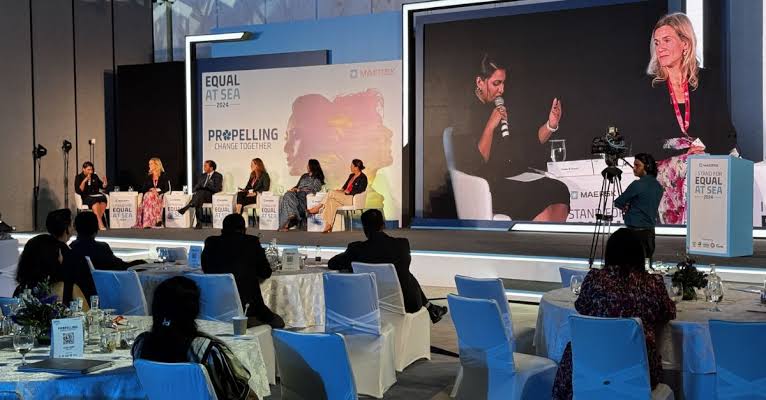
Maersk has achieved a key milestone in its ‘Equal At Sea’ initiative, with 45% of women cadets in its Nautical and Engineering programs in India by 2024.
The accomplishment gets the company closer to meeting its ambitious 2027 target of equal gender representation among its cadet intake.
The ‘Equal At Sea’ initiative, launched in 2022, aims to address women’s historical underrepresentation in the maritime sector by establishing an environment that promotes gender diversity.
The program has promoted collaboration among many stakeholders by providing a platform for exchanging ideas, addressing challenges, and implementing best practices.
Industry experts state that diversity is essential to support innovation and growth in the maritime sector.
The Danish Ambassador to India reiterated the industry’s collaborative responsibility to provide opportunities for women in maritime professions, which he feels will strengthen the global shipping community and improve sustainability.
Maersk’s commitment to gender equality is seen in its excellent progress: the number of Indian female seafarers has increased to nearly 350, a significant increase from 41 in 2021.
Additionally, women now comprise more than half of the cadets in the Nautical division. In 2023, the company also launched a Women Rating Programme, which began with 22 trainees and eventually expanded to 70 women in training.
The ‘Equal At Sea’ conference, held in Mumbai, brought together maritime industry leaders to discuss gender diversity and inclusion. The event included seminars on workplace culture, honouring trailblazing women, and examining the challenges that women face in the sector.
A status update on Maersk’s diversity initiatives highlighted the company’s continued commitment to establishing an inclusive maritime environment.
On a global scale, the initiative’s success in India greatly contributed to Maersk’s overall progress in gender diversity.
The number of women in Maersk’s fleet has more than doubled, from 295 in 2021 to over 650 in 2024, while women’s representation in the global seafarer pool has increased from 2.3% in 2022 to 5.5% in 2024.















